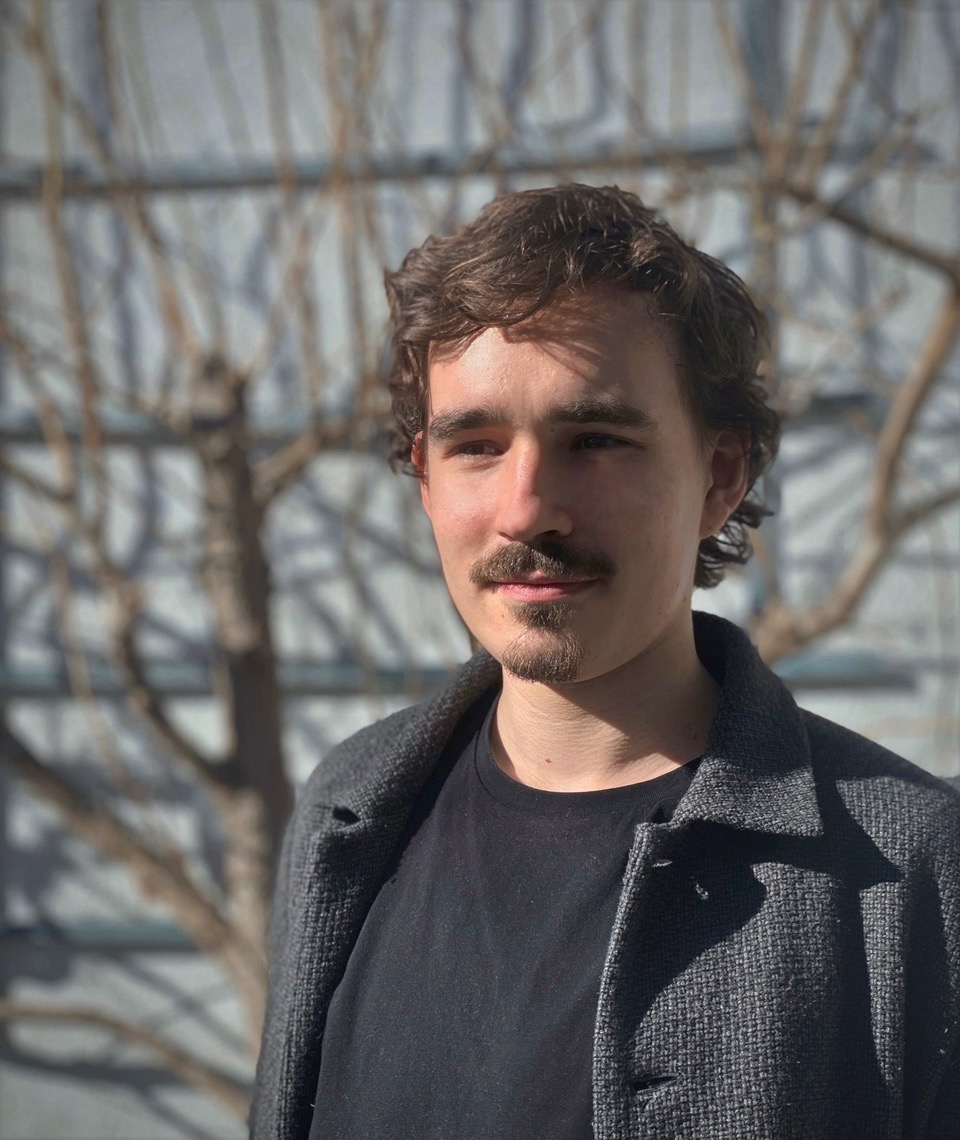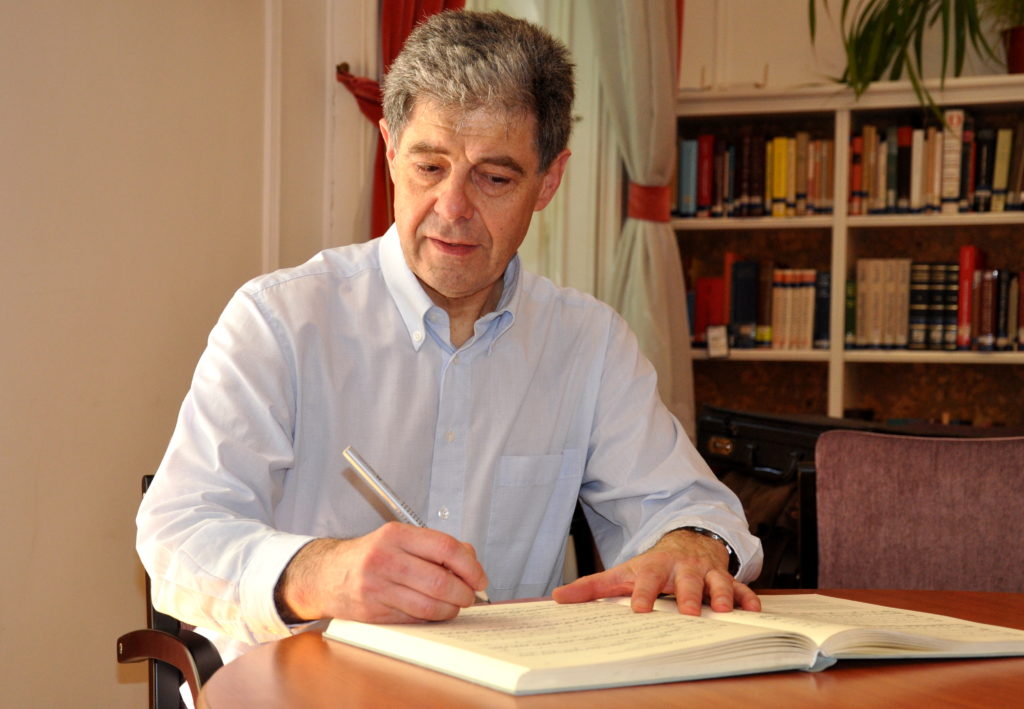
UE composers from Austria
UE composers from Austria
Gisler/Rahbari
*23 April 1951
Barbara Gisler-Haase is an emeritus professor of flute at the University of Music and Performing Arts Vienna. In 1983 she founded the ensemble "Vienna Flautists." Barbara is the author of the multi-volume flute method "Magic Flute" and the series "Fit for the Flute."
Fereshteh Rahbari taugh teaching practice at the University of Music and Performing Arts vienna and taught at music schools in Vienna. She is a founding memeber of the Vienna flautists and author of flute literature for Universal Edition.
Rahbari/Gisler
Barbara Gisler-Haase is an emeritus professor of flute at the University of Music and Performing Arts Vienna. In 1983 she founded the ensemble "Vienna Flautists." Barbara is the author of the multi-volume flute method "Magic Flute" and the series "Fit for the Flute."
Fereshteh Rahbari taugh teaching practice at the University of Music and Performing Arts vienna and taught at music schools in Vienna. She is a founding memeber of the Vienna flautists and author of flute literature for Universal Edition.
Akos Banlaky
*29 January 1966
The Vienna-based composer, (born in 1966), was educated in 1991-98 at the University of Music and Performing Arts in Vienna in the composition class of Prof. Kurt Schwertsik. Ethnomusicological research trips to Cameroon, Venezuela, Ethiopia, Irian Jaya, Gabon, Papua New Guinea etc. From 2017 curation of the concert series “Lebenszeichen” at the Carinthischer Sommer Festival, as well as curation of concerts in the Roter Salon, Vienna, at the Master Classes Gutenstein and others. At the invitation of the Federal Ministry for European and International Affairs programming at various cultural forums (London, Budapest, New York, etc.).
The works: 6 operas, around 150 songs, 15 „Liedphantasien“, an oratorio, orchestral and chamber music are performed throughout Europe.
Important awards, performances and commissions (selection):
1997 Wiener Festwochen (2nd Violin Sonata)
2001 Theodor Körner Prize for the Fantasy for Piano and Orchestra
2002, 2010, 2015 Musikverein (2nd Song Fantasy, 1st String Quartet, Sonata da Camera op 51. no. 1)
2007 annual grant from the Federal Chancellery for the opera Cyrano
2004 Vienna and Innsbruck, Tiroler Landestheater: Schock – short opera
2006 Innsbruck, Tiroler Landestheater: Unter dem Milchwald (Under Milk Wood) – opera in one act)
2008 and 2009 Vienna, sirene opera theater : Prinz, Held und Füchsin (Prince, Hero and Vixen) - opera in 2 acts and Der Stern des Wallenstein (The Star of Wallenstein) - opera in one act
Alexander Blechinger
*5 March 1956
"For me, music is when I want to hear it a second time."
Alexander Blechinger born in Vienna in 1956. Music simply has to sound good. Self-taught first successes on the piano at the age of 5. First compositions in 1970. 1973 Performance in the Großer Konzerthaussaal/Vienna 1975 - 1985: Studied music at the Vienna Academy of Music with Kubizek, Cerha, Suitner and many others 1982 Wind quintet as part of the ORF series on Ö1. Director of Harmonia Classica. From 1983 various film music, concerts in the Wr.Konzerthaus, Wr. Musikverein and all over the world. 1992 Theodor Körner Prize for the opera "Die böse 7". 2001: World premiere of "Die Vertriebenen" at the Großer Musikvereinssaal in Vienna. 2006: Awarded the Sudeten German Culture Prize for Music. 2008 + 2009: Opera "Max & Moritz" Opera Festival St. Margarethen. ES 192 Haydn rediscovered. 2012: "Max & Moritz Overture" Tonkünstler Orchestra Music Festival Grafenegg. 2015: Short opera "Ihr Kinderlein kommet nicht?" Deutschordenskirche, Vienna. 2021: New film adaptation of "My baby, where are you?" 2022 Concert 40 Years Harmonia Classica on CD. Two books „Joseph Haydn neu entdeckt“ (Joseph Haydn newly discovered) and „Mozart.der vielseitige Alleskönner“ (Mozart.The versatile all-rounder).
2023 „Weltraumouvertüre“ (A Space Overture) Video with stunning pictures of the Galaxy on Youtube.
Worldwide broadcast. So far there are 5 LPs and far over 50 CDs.
Many videos on Youtube, music on Spotify a.o. platforms.
2024 Completion of the Simä-Suite op.252: after "Atomblitz-Ouvertüre" and "Festmusik-Intermezzo", the third part "Trennung + Abschied" is now in progress. Premiere on June 15, 2024 in the Ehrbarsaal in Vienna. The KünstlerOrchesterWien will perform under the direction of the composer as part of the Harmonia Classica orchestral concert.
Alexander Stankovski
*22 February 1968
Alexander Stankovski, born in Munich in 1968, studied composition at the Vienna Musikhochschule with Francis Burt and at the Hochschule für Musik und darstellende Kunst in Frankfurt am Main with Hans Zender. He received commissions from renowned performers and ensembles, and performances at international festivals brought him attention and recognition. Stankovski taught a composition class at the Vienna University of Music as assistant to Michael Jarrell from 1996 to 2004. From 1998 to 2018 he was Senior Lecturer at the University of Music and Performing Arts Graz. Since September 2018 he has been Professor of Music Theory at the Anton Bruckner Private University. In 2017/18 he worked at the Institute for Computer Music and Sound Technology (ICST) at the Zurich University of the Arts on the realisation of a full-length scenic radio play for speaker, ensemble and electronics. At the end of 2019, an LP+CD with duos for all instruments of the clarinet family was released by GOD records.
Amr Okba
*4 May 1972
Amr Okba is an Egyptian Austrian composer born in 1972. He started his musical education with piano and music theory lessons at the Institute of Arabic Music and Faculty of Music Education. In 1993, Amr obtained his Bachelor degree in Management and Business Administration in Egypt. Afterwards, he joined the Cairo Conservatoire (Department of Composition and Conducting), where he graduated with distinction. In 1998, Amr obtained his Bachelor in Composition, and short after he was awarded with the Rome Prize-State Prize for Artistic Creation (Composition), which allowed him to spend one year and a half in Italy. This award, which fosters the Egyptian-Italian cultural exchange, provided him the opportunity to get acquainted with European culture. There, he studied Composition with Professor Mauro Burtolotti.
In 2003, through the Egyptian-Austrian Cultural Exchange Programme (ÖAD), Amr obtained a scholarship that allowed him to continue with his musical career. In Austria, he studied Composition at both “Universität Mozarteum Salzburg“ and “Universität für Musik und darstellende Kunst Wien“ with Reinhard Febel (Composition) and with Dieter Kaufmann (Electronic and Experimental Composition). In 2006, Amr premiered his first Opera, ”The book of going forth by day“, which was commissioned by ”Musik der Jahrhunderte“, for the ISCM opening concert in Stuttgart. This brought him international recognition, followed by a series of engagements, projects, commissions and concerts with prestigious festivals and organizations, such as ”Salzburg Biennale - 2009“, “Ars Electronica Festival – 2012”, “Bregenzer Festspiele“, “Salzburger Festspiele - 2014”, and others.
In 2008, Amr obtained the Austrian State Stipend for Composition, the Salzburg Annual Stipend for Music, in 2009, and finally the Austrian State Stipend for Composition for the second time in 2016. Amr’s music was performed by several prestigious Orchestras and Ensembles such as, Stuttgart Radio Symphony Orchestra (Conductor, Lukas Vis – ISCM Festival 2006), Mozarteum University Orchestra (Conductor, Dennis Russell Davies), The BBC Symphony Orchestra, Cairo Symphony Orchestra, Bruckner Orchester-Linz (Conductor, Dennis Russell Davies – Ars Electronica 2012), Wiener Collage Ensemble, OENM Ensemble (Conductor, Johannes Kalitzke, Arturo Tamayo), the composer Ensemble, London Sinfonietta (Conductor: Diego Masson - Queen Elizabeth Hall), Ensemble Resonanz, Neue Vocalsoliten Stuttgart and others. Amr’s music has also been broadcasted by several European Radio stations such as SWR (Germany), ORF/Ö1 (Austria), Radio Classica (Spain), Radio Denmark and others.
In 2011 Amr was granted the Austrian citizenship.
Annamaria Kowalsky
*21 April 1991
Growing up in a theatrical environment Annamaria Kowalsky has been imprinted with multidisciplinarity from early age on. She was trained as an instrumentalist at the University of Music and Performing Arts Vienna and studied philosophy at the Academy of Fine Arts Vienna. Being an autodidact and avid learner she pursued her passion for visual art alongside her studies as a violist and channeled her observations and research about consciousness and its possibilities of communication into her doctorate.
She views mastering multiple disciplines as an expansion of her expressive possibilities. Her artistic and musical creations have received international recognition, and her innovative approaches in combining various media have earned her widespread acclaim. As a result, the Arvo Pärt Center in Estonia extended an invitation to her to inaugurate their new residency program, making her the first guest to partake in a creative period at the center.
Balduin Sulzer
*10 June 1959
†10 April 2019
Balduin Sulzer wurde 15. März 1932 in Grossraming, OÖ., geboren. Nach dem Besuch des Gymnasiums studierte er in Linz und Rom Philosophie und Theologie sowie in Wien die Unterrichtsfächer Musik und Geschichte. Seine musikalische Ausbildung erfolgte zuerst am Brucknerkonservatorium in Linz, später an der Hochschule für Kirchenmusik in Rom und an der Wiener Musikhochschule. Nach mehrjähriger Tätigkeit als Musikpädagoge an diversen Gymnasien, als Korrepetitor am Bruckner-Konservatorium und als Domkapellmeister (1981-1985) arbeitete Sulzer vor allem als Lehrer am Linzer Musikgymnasium. Dort gründete er das Linzer Jeunesse-Orchester und den Mozart-Chor, den er zum international gefragten Oratorienchor entwickelte. Unter dem Dirigenten Franz Welser-Möst wurden in Zusammenarbeit mit EMI Classics Carl Orffs „Catulli Carmina" sowie „I Trionfi" in München auf CD aufgenommen. Für die Einspielung von Anton Bruckners „Messe in f-Moll" und „Te Deum" in London erreichte der Mozart-Chor 1997 von der National Academy of Recording Arts & Sciences eine „Nomination for Best Choral Performance".
Balduin Sulzers Werkverzeichnis umfasst rund 420 Titel, darunter 3 Opern, 9 Symphonien, 1 Passion, 12 Instrumentalkonzerte, Klavier- und Kammermusik, Lieder und Chormusik. Exemplarische Aufführungen gab es u. a. mit dem London Philharmonic Orchestra, dem Sendai Philharmonic Orchestra, den Philharmonischen Orchestern von Kiel und Erfurt, dem Kammerorchester Stockholm, dem Brünner Kammerorchester, dem Bruckner Orchester Linz und dem Wiener Kammerorchester. Für sein kompositorisches Schaffen und seine pädagogische Tätigkeit erhielt Sulzer viele Auszeichnungen, u. a. die Kulturmedaille der Stadt Linz, den Heinrich-Gleißner-Preis, den Anton-Bruckner-Preis, das goldene Ehrenzeichen des Landes Oberösterreich und den Würdigungspreis der Republik Österreich.
Balduin Sulzer ist am 10. April 2019 in Wilhering verstorben.
Barbara Gisler-Haase
Barbara Gisler-Haase is an emeritus professor of flute at the University of Music and Performing Arts Vienna. In 1983 she founded the ensemble "Vienna Flautists." Barbara is the author of the multi-volume flute method "Magic Flute" and the series "Fit for the Flute."
Çağrı Beklen
*6 June 1977
Çağrı Beklen has composed music for over 40 productions and has received eight awards to date. He studied jazz guitar and classical composition under internationally-acclaimed composers such as Wolfram Wagner, Ulf-Diether Soyka and Josef Stolz. Since 2006 he has been commissioned to produce work for many theatre companies, seeing him win several prestigious awards in the category “best theatre music” for productions: "Michelangelo" (2012), "Sessizlik" (2013), "V. Frank" (2015), "Eğer Bu Bir Film Olsaydı" (2015), "Kundakçı" (2017), "Coriolanus" (2017) and "Üç Kız Kardeş" (2017). From 2012 to 2016, he taught composition, music theory and orchestral conducting at the State Conservatory of Kocaeli University, since 2018 Film Music at the Vienna Franz Schubert Conservatory. As well as being a successful composer, Beklen has played guitar in numerous bands, including Details, Matthew Marth Quartet, and most recently Beklen Band, a shared project with his wife Tuğba Yağmur, a vocalist.
Christian Spitzenstaetter
*25 May 1994
Christian Spitzenstaetter's path as a performer leads him from classical solo and chamber music to jazz and especially to contemporary, improvised, and conceptual music. As a composer, he has been able to create works commissioned by Jeunesse Österreich, Academia Vocalis and the Tiroler Festspiele Erl, among others. His first big opera "STILLHANG" was awarded the Austrian Music Theater Prize in the category "Best Premiere/First Performance" in August 2020. As a conductor, he has performed with Camerata Salzburg, Mozarteum Orchester Salzburg, Brandenburger Symphoniker, orchestra giovane and Orchester KOMP.ART, among others. In December 2020, he received the "Tschumi Prize" for the best degree in the Master of Arts in Specialized Music Performance | Soloist at the Bern University of the Arts. Since 2022 he is a member of the Compagnie Merce & John and since June 2023, he is the president of the Swiss Music Edition SME.
Christoph Renhart
*28 October 1987
Christoph Renhart (* 28.10.1987 in Graz) graduated in composition and music education (piano) at the University of Music and Performing Arts Graz with distinction. His principal teachers were Richard Dünser (composition), Christiana Perai and Annamária Bodoky-Krause (piano). He has received important inspiration from Matthias Pintscher and Brad Lubman at the composer-conductiong workshop «INK STILL WET» at the Grafenegg Festival.
Renhart‘s works have been frequently staged by renowned musicians and ensembles. His music was played by the Brussels Philharmonic, the Tonkuenstler Orchestra, the Jenaer Philharmonie, the Klangforum Wien, the Ensemble Kontrapunkte Vienna, the Ensemble Musiques Nouvelles, the Ensembe „die reihe“, the Shanghai Sinfonietta, the Schallfeld Ensemble, the ensemble plus, the Hugo Wolf Quartet, the Ensemble Zeitfluss and soloists such as Karin and Doris Adam, Anna Magdalena Kokits, Alexander Gebert, Georg Klimbacher and Klaudia Tandl. Moreover, Renhart‘s music has been broadcast by numerous radio stations around the world (ORF Ö1, rbb Kultur, sverige radio P2, Radio Beograd 3, Yleisradio Oy, Rádio e Televisão de Portugal, Polskie Radio Dwójka, RAI Südtirol, Radio Vltava).
As a composer Renhart was featured at the Malta International Spring Orchestra Festival 2017, the Weimarer Frühjahrstage für zeitgenössische Musik 2017 and the Festival Texte und Töne organized by the Austrian Broadcasting Corporation ORF. At the musikprotokoll 2018 his work «Catalogue des Arts et Métiers» was successfully premiered.
Renhart‘s music was awarded the International Nikolaus Fheodoroff Prize in Composition, the Austrian State Scholarship, a prize for string quartet tendered by the Jeunesse, the Alban Berg Foundation and the Hugo Wolf Quartet, the city of Graz‘s Advancement Award in Music and the 3rd prize for orchestra at the festival Weimarer Frühjahrstage für zeitgenössische Musik. His work «Catalogue des Arts et Métiers» was named as «recommended work» at the 66th International Rostrum of Composers. 2019 Renhart was invited to the [‘tactus] Young Composers‘ Forum in Brussels and Mons, in 2020 his music will be staged at the festival Flagey New Music Days in Brussels.
In 2017 a portrait CD with works by Christoph Renhart was released in the ORF Edition Zeitton (CD 3218), in 2020 his recording of «XXI Oracles of the Night I» for piano solo was published by the label VMS.
Christoph Renhart organises a concert series for New Music at the Kulturzentrum bei den Minoriten in Graz. He is a board member of the Austrian Society for Contemporary Music (ÖGZM). Since 2018 he teaches music theory at the University of Music and Performing Arts Graz as a senior lecturer.
Daniel André Vitek
*19 July 1968
Daniel André Vitek wurde 1968 in Örebro/Schweden geboren und ist in Dornbirn/Vorarlberg aufgewachsen. Besuch des Musikgymnasiums Feldkirch. Studien an der Hochschule für Musik und darstellende Kunst in Wien: Komposition bei Claus Ganter und Kurt Schwertsik, Violine-IGP bei Maeve Auer. Dirigierstudium am Tiroler Landeskonservatorium bei Edgar Seipenbusch, Weiterbildungsstudium in Gesang am Vorarlberger Landeskonservatorium bei Judith Bechter. D. A. Vitek arbeitet als Instrumentallehrer am BORG Feldkirch (Violine und Klavier) und ist außerdem als Chorleiter und Organist in Österreich, in der Schweiz und im Fürstentum Liechtenstein tätig. Soloauftritte als Geiger und Sänger (Bariton)

Daniel Auner
*19 July 1987
Dario Cebic
*3 February 1979
Academic, Prof. Dr. Dario Cebic (ordinary member of European Academy of Sciences and Arts). He attended elementary and secondary school, after which he started higher education in piano, composition, double bass, music science, music theory, music pedagogy, conducting and musicology. In 2007 he starts doctoral studies in music science. In 2012 he finished doctoral study (Dr. Phil ) at "Universität für Musik and darstellende Kunst" in Graz, and "Postgraduate study" in composition at "Universität für Musik and darstellende Kunst in Vienna" under professor Michael Obst. Specialisation: "Hans Eisler“ Hochschule für Musik, Berlin; "Universität“ Freiburg, "Hochschule für Musik“ Frankfurt and "Impuls Academy“. Selected prizes and awards: On February 5, 2020 awarded by the Croatian President for art, pedagogical work, and composition. 1st Prize on International Music Competition in Paris, Berlin, London, Copenhagen, Barcelona, Buenos Aires, Vienna, Mailand, Prague, Toronto, Sydney and Lisabon.
Erich J. Wolff
*19 April 1968
Erich J. Wolff (1874-1913)
The Jewish-born Austrian composer Erich J.(acques) Wolff was born Jakob Wolff in Vienna on 3 December 1874, making him a contemporary of Arnold Schönberg and a member of the generation of Ravel, Rachmaninoff and Scriabin, as well as Hugo von Hofmannsthal, Max Reinhardt and Rainer Maria Rilke. He changed his first name from Jakob to Erich J., probably out of experience with the not always easy situation for Jews in Vienna. He then generally abbreviated his middle name Jacques (the French version of Jakob) to J. He died very early on 20 March 1913 of an ear infection in New York during a concert tour in the USA.
Education
He studied piano at the Conservatory of the Gesellschaft der Musikfreunde in Vienna with Czerny's pupil Anton Door and composition with Robert Fuchs, the so-called "Serenade-Fuchs" because of his beautiful orchestral serenades, who had already taught Gustav Mahler the craft, but was also to teach Zemlinsky, Schreker, Sibelius and Erich Wolfgang Korngold and Robert Stolz.
Impact during his lifetime
According to Engelbert Humperdinck, Erich J. Wolff was perhaps Austria's most important piano accompanist at the beginning of the 20th century.
As a composer, the art song was at the centre of his work with over 150 contributions. He also wrote piano music for two and four hands, chamber music for violin and piano, three melodramas, a large violin concerto and a ballet pantomime, which was premiered posthumously in Prague. According to Peter P. Pachl, he also attempted an opera, although there are no clear sources for this. One thing is certain: he worked with the best German-speaking singers of his time and therefore more than internalised the human voice.
Forever forgotten?
It is artistically incomprehensible that this composer has been all but forgotten. There were times when he was better known abroad than Alexander von Zemlinsky and Arnold Schönberg, with whom he was also friends. But after his early death in the USA, Wolff was quickly forgotten, especially in Europe. In the USA, where well-known singers such as the Dutch soprano Julia Culp and the then MET star Florence Easton still championed him, some of his songs remained in the repertoire until after the Second World War, when they gradually disappeared into oblivion there too.
The reasons for this are certainly not to be found in the quality of his music, which was almost completely published during his lifetime, but on the one hand in the First World War, which broke out shortly after his death, and on the other hand in the lack of descendants or advocates of his work who would have had to stand up for his work. Most of his music is no longer published and can therefore no longer be performed, even with the best will in the world.
The Nazis dealt the final blow to Erich J. Wolff's oblivion: Music by Jewish composers could not be performed in Germany from 1933-45 and then also in Austria from 1938-45. Bad luck and misfortune therefore almost completely erased his name.
The author of these lines intends to change this from April 2024, when his complete song oeuvre, his melodramas and his piano music will gradually be published again on CD [Naxos] and as sheet music [Scodo/UE].
Personal epilogue
The author of these lines is a pianist and has been working since 2022 on the complete recording of all songs with eight different renowned singers on 7 CDs and will also publish them again together with his piano and chamber music in printed music. Working with this repertoire for two years has enabled me to get to know what is probably the most perfect song composer of the early 20th century. This cosmos is an absolute revelation for me and all the singers involved. No other song works by German-speaking composers between 1902 (when his op. 1 appeared) and 1913 are altogether as successful and rewarding as those of Erich J. Wolff. Not even those of H. Pfitzner or Richard Strauss. They perhaps represent the last flowering of the late Romantic lied repertoire.
As a Lied pianist of many years' standing, I know the entire late Romantic repertoire very well and can say with certainty: what a gift to bring this music back into our consciousness and what an honour to be able to make it available to all interested parties again soon.
Klaus Simon—Editor
Georg Friedrich Haas
*16 August 1953
Georg Friedrich Haas was born in 1953 in Graz, a city in the east of Austria. His childhood was spent in the mountainous province of Vorarlberg, on the Swiss border. The landscape and the atmosphere of the place have left a lasting impression on his personality.
The atmosphere was marked not so much by natural beauty in the accepted sense of the word. Rather, Haas experienced the mountains as a menace; he felt closed in by the narrow valley where the sun rarely penetrated. Nature for him represented a dark force.
The composer adds: “Just as important for me was the experience of being an outsider: unlike my younger siblings, I never learned to speak the local Alemannic dialect. Also, I was a Protestant in a predominantly Catholic society.”
To study music, Haas returned to his native city where his professors were Gösta Neuwirth and Ivan Eröd. Later, he continued his studies in Vienna with Friedrich Cerha.
Haas: “For all our apparent differences (and probably mutual personal disappointments) I learned from Eröd – apart from many things about the craft of composition – one principle above all else: that the measure of everything is Man, that is, the possibilities inherent in human perception”.
Haas holds Friedrich Cerha in high esteem, something that the older composer (born in 1926) returns in full measure. When the occasion arises, they demonstrate their mutual appreciation
unstintingly. In 2007, it was Cerha, the doyen of Austrian composers, who proposed his former pupil for the Great Austrian State Prize which Haas duly received that year.
Until then, however, Haas had had a thorny path to traverse. He speaks openly of the years of “total failure” in trying to make his mark as a composer – another experience to leave its imprint on his development, aggravating his pessimistic leanings. Success, when it did gradually emerge, only mitigated his pessimism but could never wholly eliminate it.
It is no wonder, then, that night, darkness, the loss of illusions should have played such an important role in Haas’ oeuvre (such as in his Hölderlin-opera Nacht, 1995/1998). It was not until quite recently that his music has been illuminated by light.
Light effects, as integral components of a range of his compositions, have featured prominently for quite some time now, designed by artists specially for the music. (in vain, 2000, and particularly Hyperion, a Concerto for Light and Orchestra, 2000). However, light as opposed to darkness first emerged as late as 2006 in Sayaka for percussion and accordion as well as in the piano trio Ins Licht (2007) written for Bálint András Varga.
Georg Friedrich Haas is known and respected internationally as a highly sensitive and imaginative researcher into the inner world of sound. Most of his works (with the notable exception of the Violin Concerto, 1998) make use of microtonality which the composer has subjected to thorough examination in the wake of Ivan Wyschnegradsky and Alois Hába. He has taught courses and lectured on the subject in several countries; in 1999 he was invited by the Salzburg Festival to give a talk under the title “Beyond The Twelve Semitones”, with the subtitle “Attempt at a Synopsis of Microtonal Composition Techniques”. In the last paragraph, he writes:
“Micro counts as ‘tonality’ only in contrast with ‘normal tonality’ in its role as a system of reference. Where this system of reference has become obsolete, the notion of ‘microtonality’ has been replaced by the free decision of the individual composer in his use of pitch as his material.”
Haas: “I am not really comfortable with being pigeonholed as a ‘microtonal composer’. Primarily, I am a composer, free to use the means needed for my music. There is no ideology regarding ‘pure’ intonation, either as Pythagorean number mysticism or as a notion of ‘Nature’ determined by trivial physics. I am a composer, not a microtonalist.”
In each new work, Haas enters uncharted territory, but his music is firmly rooted in tradition. His profound admiration for Schubert has found moving expression in his Torso of 1999/2001, an orchestration of the incomplete piano sonata in C major, D 840, an image of the tragic figure of Franz Schubert. Haas paid respect to Mozart not only in his "… sodaß ich’s hernach mit einem Blick gleichsam wie ein schönes Bild…im Geist übersehe," composed for string orchestra in 1990/1991, but also in 7 Klangräume, 2005, meant to be interspersed with movements of Mozart’s Requiem fragment (that is, divested of the supplements provided by his pupils). In Blumenstück, 2000, for chorus, bass tuba and string quintet, one hears echoes of Beethoven (perhaps never intended by the composer). In the Concerto for Violoncello and Orchestra, 2003/2004, the solo instrument quotes a motif from Franz Schreker’s opera Der ferne Klang (‘O Vater, dein trauriges Erbe’). Commissioned by the Gewandhausorchester Leipzig, Haas’ Traum in des Sommers Nacht (2009) is a tribute to Mendelssohn, drawing on motifs from works of that composer, masterfully woven into Haas’ own music.
The Cello Concerto, just as Wer, wenn ich schriee, hörte mich ..., 1999, for percussion and ensemble, reflects Haas’s political commitment and his bitter realisation of his helplessness as a composer: there is no way his music could serve to better the world. The percussion concerto was written at the time of the Balkan war; when Haas heard aeroplanes flying overhead carrying their deadly burden, he asked himself whether anyone could hear him, if he were to cry out in protest against the war. The Cello Concerto begins with a scream in unbearable pain, followed by a section where the drumbeat conjures up the march rhythm of the Prussian army: a plea against fascism.
A daringly innovative composer of rich imaginative power, a homo politicus aware of his responsibilities as a citizen, Georg Friedrich Haas is one of the leading artists in Europe today. Among the prizes he has won are the SWR Symphony Orchestra Composition Prize 2010, the Music Award of the City of Vienna 2012 and the Music Award Salzburg 2013.
1953 – Born on 16 August in Graz
1972–79 – Studies: composition (with Gösta Neuwirth, Ivan Eröd and others), piano (with Doris Wolf) and music pedagogy at the Musikhochschule in Graz
since 1978 – Teaching at the Musikhochschule in Graz (counterpoint, contemporary composition techniques, analysis, introduction to microtonal music)
1981–83 – Postgraduate study with Friedrich Cerha at the Hochschule für Musik in Vienna
1980/88/90 – Attends the Darmstadt Summer Courses
1991 – Participation in the “Stage d’Informatique Musicale pour Compositeurs” at IRCAM, Paris
1992/93 – Fellowship for the Salzburg Festival
1992 – Sandoz Prize
1995 – Young Composers' Grant of the Federal Ministry for Science, Research and Culture
07 Aug 1996 – world première of the chamber opera Nacht (Night) at the Bregenz Festival
07 Aug 1998 – Stage Première of Nacht at the Bregenz Festival
18 Nov 1996 – Ernst Krenek Prize of the City of Vienna for the chamber opera Nacht
1999 – Selected composer in the Next Generation series at the Salzburg Festival
1999/2000 – German Academic Exchange Service (DAAD) fellowship
2000 – International Rostrum of Composers Prize for Violin Concerto
14 Aug 2003 – world première of Die schöne Wunde, commissioned by Bregenz Festival and NetzZeit Wien in Bregenz
19 Oct 2003 – world première of Natures mortes for large orchestra, commissioned by Donaueschinger Musiktage
March 2004 – Festival composer at “ars musica” in Brussels
16 June 2004 – City of Vienna Prize for Music
9 July 2004 – world première of Concerto for violoncello and orchestra commissioned by Musica Viva Munich
August 2004 – Lecturer at the Darmstadt Summer Courses
2005 – German CD Critic Prize for the CD String Quartets No. 1 and 2 recorded by Kairos Quartett
25 April 2005 – Andrzej Dobrowolski Composition Award, presented by the Province of Styria/Austria in Graz
3 July 2005 – world première of Ritual for 12 big drums and 3 wind orchestras, commissioned by Klangspuren Schwaz in cooperation with Tiroler Landesausstellung and Alpinarium Galtür
2005 – 2013 – professor at the Music Academy of the City of Basel, Switzerland
Autumn 2005 – Featured Composer at Klangspuren Festival Schwaz / Austria
4 Dec 2005 – World Premiere of 7 Klangräume for soloists, chorus and orchestra commissioned by Stiftung Mozarteum
March 2006 – Festival Composer at Borealis Festival in Bergen / Norway
23 Mar 2006 – world première of Poème for large orchestra, commissioned by Cleveland Orchestra / Franz Welser-Möst
22 Oct 2006 – world première of Hyperion for Lighting and Orchestra, Donaueschinger Musiktage
13 May 2007 – world première of Bruchstück for large orchestra, commissioned by Munich Philharmonic
07 Nov 2007 – world première of Concerto for piano and orchestra at Wien Modern in Vienna
12 Nov 2007 – world première of REMIX for ensemble, Wien Modern in Vienna
28 Nov 2007 – Award of the Großer Österreichischer Staatspreis of the Republic of Austria
03 May 2008 – Première of Concerto for Baritone Saxophone and Orchestra
09 June 2008 – Première of Melancholia (Opera) at the Opéra National de Paris
28 Aug 2009 – world première of Traum in des Sommers Nacht in Leipzig
15 Jan 2010 – world première of ATTHIS
04 Feb 2010 – world première of La profondeur, Amsterdam
17 Oct 2010 – world première of limited approximations for 6 micro-tonally tuned pianos and orchestra, Donaueschinger Musiktage
SWR Symphony Orchestra Composition Prize 2010 for limited approximations at Donaueschingen
22 Oct 2010 – world première of Arthur F. Becker (od. Buhr?), Heidelberg
26 Nov 2010 – world première of „... damit ... die Geister der Menschen erhellt und ihr Verstand erleuchtet werden ...“ for ensemble. Basel
04 Feb 2011 – world première of String Quartet No. 6, Mozartwoche, Salzburg
März 2011 – member of the österreichischer Kunstsenat (Austrian Artistic Senate)
04 Jun 2011 – world première of chants oubliés for chamber orchestra. Munich
10 Sep 2011 – world première of String Quartet No. 7, Luzern
18 Dec 2011 – world première of Mlake / Laaken in Munich
Summer 2011 – Composer-in-residence at the Lucerne Festival
2012 – member of the Academy of Arts, Berlin
17 Mar 2012 – world première of Duchcov in Munich
15 Jun 2012 – world première of „Ich suchte, aber ich fand ihn nicht“ at the musica viva festival in Munich
25 Aug 2012 – world première of „…e finisci già“ at the Salzburger Festspielen
13 Sep 2012 – world première of Tetraedrite at the Klangspuren opening concert in Schwaz
03 Mar 2013 – Music Award Salzburg 2013
20 Feb 2014 – world première of dark dreams, Berlin (Berlin Philharmonic conducted by Simon Rattle)
28 Mar 2014 – world première of the concerto grosso No. 1 in Munich
10 May 2014 – world première of the concerto grosso No. 2 at the Tectonics Festival in Glasgow
2015 – member of the Bavarian Academy of Fine Arts
26 April 2015 – world première of the Saxophone Quartet in Cologne
21 Oct 2015 – world première of the String Quartet No. 8 in Basel
13 Nov 2015 – world première of the opera Morgen und Abend (libretto: Jon Fosse) at the Royal Opera House
Publications: papers on the works of Luigi Nono, Ivan Wyschnegradsky, Alois Hába and Pierre Boulez, on microtonality, and on the foundation of a new music theory
Since 16 August 2013 he is MacDowell Professor of Music at Columbia University.
Gerhard Habl
*5 August 1948
Born in Vienna in 1948, he started piano lessons at age 7 and later studied compositions with Prof. Emmy Zopf (back then Conservatory of the City of Vienna, pupil of Eugen d’Albert). After his school leaving examination (1966) and military service he pursued his musical education further with Prof. Werkner (back then College for Music and Performing Arts) and conductor Norbert Strolz; at the same time, he studied Law and gained his doctorate in 1971. He pursued a career as a Judge, which culminated in a promotion to the Supreme Court of Austria in 1997.
His first Period of composition until 1974 was followed by a time of “musical abstinence” and a career in Law, the second Period of composition started in 2005. While he has two places of residence in Vienna and Lower Austria, he mostly works in his “House of composition” in Grünau in the Pielachtal. In 2012 he presented a CD (Label Gramola), followed by concerts in the Wiener Musikverein and Konzerthaus (Vienna) as well as other countries. First experiences as organiser of classical concerts, founder and artistic director of the “PCC- Pielachtaler Classic Concerts” in 2017.
Member of INÖK (community of interests Lower Austrian composers) and of "Austrian Composers Association".
Award of the Austrian Cross of Honour for Science and Art by the Austrian Federal President Van der Bellen (2024).
Germán Toro Pérez
*4 March 1964
Germán Toro Pérez (Bogotá *1964)
Studies in music theory at the Universidad de los Andes, Bogotá and composition at the University of Music and Performing Arts, Vienna. Studies on electroacoustics and computer music in Vienna and Paris.
His output includes instrumental, electroacoustic compositions and cross-disciplinary works. His music theater work «Journey to Comala» after «Pedro Páramo» by Juan Rulfo was premiered 2017 in Zurich. Recent pieces were commissioned by the Mondrian Ensemble, Basel, the ORF Radio Symphonie Orchestra/Wien Modern, the ensemble soyus21, Zurich, and the ensemble XXI jahrhundert, Vienna.
He was head of the computer music course (1999-2006) and visiting professor for composition (2006-7) at the University of Music and Performing Arts, Vienna. Since 2007 he is professor for electroacoustic composition and director of the ICST - Institute for Computer Music and Sound Technology – at the Zurich University of the Arts.
Publications in the fields of composition, theory and aesthetics of electroacoustic music, artistic research, and the performance practice of electroacoustic music. His current research topic at ICST is the performance practice of live electronic music.
Günther Zechberger
*24 April 1951
Studies in composition and guitar at the Conservatory of the City of Innsbruck. Studies in Musicology at the University of Innsbruck. Participation in the Vienna master classes for choral conducting with Eric Ericson and conducting with Witold Rowicki. Private composition studies with Prof. Dr. Boguslaw Schaeffer. Participation in courses and workshops for computer composition and electroacoustic music, among other places at "Les Ateliers UPIC" in Paris. Lecturer in harmony at the Institute of Musicology at the University of Innsbruck (1991 -1997).
In 1984 he founded "ticom - Tiroler Ensemble für Neue Musik"; with this ensemble he realised numerous concerts in Austria and abroad as well as radio recordings, live radio projects and projects in public spaces. Zechberger was the musical and artistic director of this ensemble until 2003.
Prizes/Awards: Art Promotion Prize of the City of Innsbruck (1980), Performance recommendation at the competition "Musikprotokoll Steirischer Herbst 1981" in Graz (1981), Prize for the best work by an Austrian composer at the Alban Berg International Composition Competition (1985), “Emil Berlanda Prize“ (2001).
Hannah Lena Rebel
*21 May 2001
My name is Hannah Lena Rebel and I was born in Vienna. When I was three years old, I very intuitively composed my very first piece of music, "The dying flower". But then my path lead me through a professional ballet career at the Vienna State Opera and the MUK university before I finally came back to music. At first, I studied composition and conducting at Prayner Conservatory and then went to MDW. In January 2022 I got my first diploma in composition at MDW and afterwards studied media composition and film scoring with Walter Werzowa there to get my Master's degree. In June 2023, I became a Fellow of the Royal Society of Arts (RSA) and since September 2023, I'm also part of the RSA's Young Fellows Advisory Board.
Jehi Bahk
*26 June 1971
"An outstanding musician, who is capable to communicate his musical visions - which emanates from his great musical knowledge and experiences as chamber- and orchestramusician - through clear, elegant and expressive conducting." - Jorma Panula
The conductor and violinist Jehi Bahk is without question an exceptional musician who, after an international career as the first violinist of the renowned Hugo Wolf String Quartet (Wien) has already made a name for himself as a versatile and inspiring conductor.
Born in Vienna/Austria, Jehi Bahk received his first education in piano, violin, composition and conducting at the age of four. He was admitted into the pre-college piano class of the University of Music and Performing Arts in Vienna at the age of five and appeared also as a composer, which has been chronicled in a german magazine with an article titled 'A little Mozart from Korea'.
He is holding a master degree in violin performance of the University of Music and performing Arts in Vienna where he studied with Michael Frischenschlager and Dora Schwarzberg and a master degree in orchestra conducting of the Korean National University of Arts, where he studied with Chiyong Chung, a pupil of Michael Gielen. Further studies led him to mentors like Jorma Panula (Helsinki Panula Academy), Kurt Masur (International Mendelssohn Academy Leipzig), Riccardo Muti (Muti Opera Academy), Massimiliano Caldi (Florence Conducting Masterclass), and Gianluigi Zampieri (Nepi Festival).
In Vienna Jehi Bahk has been the leader of the internationally acclaimed Hugo Wolf Quartet, which he cofounded during his studies. With his ensemble he won coveted awards as the Special Prize of the Wiener Philharmoniker, the European Cultural Award for chamber music, and the 1st prize at the International String Quartet Competition in Cremona, which culminated in the nomination as "Rising Stars" of the European Concert Hall Organisation (ECHO), which led him to major international concert halls like Carnegie Hall New York, Berlin Philharmonie, Concertgebouw Amsterdam, Wigmore Hall London, Wien Musikverein, Prag Rudolphinum, Cite de la musique Paris, Symphony Hall Birmingham.
On the occasion of the 100th anniversary of Hugo Wolfs death, Jehi Bahk arranged selected songs from Wolf's "Italian Songbook" for voice and string quartet (2003) which was premiered at the Vienna Musikverein. He commissioned and premiered works by Z. Bargielski, F. Cerha, J. M. Staud, E. Urbanner and E. Wellesz.
Jehi Bahk served as concertmaster of several orchestras in Korea like the Philharmonia Corea, Prime Philharmonic Orchestra, and as associate concertmaster of the Seoul Philharmonic Orchestra, and performed with conductors like Stephen Asbury, Andrey Boreyko, Myung-Whun Chung, Mikko Frank, Ion Marin, Rossen Milanov, Ludovich Morlot, and Francois Xavier Roth. As a sought after guest leader he performed with orchestras like the Real Orquesta Sinfonica de Sevilla, Orquesta Filarmonica de Gran Canaria, Busan Philharmonic Orchestra, Hwaum Chamber Orchestra, Incheon Philharmonic Orchestra, New World Philharmonic Orchestra, Tongyeong International Festival Orchestra, etc.
Johanna Doderer
*18 September 1969
Johanna Doderer
The Vienna-based composer Johanna Doderer was born in Bregenz in 1969 and studied with Beat Furrer in Graz and then composition and music theory with Erich Urbanner and film and media composition with Klaus Peter Sattler in Vienna.
The focus of her work lies on opera. Besides many works for chamber music, she has also written several works for orchestra. Her compositions are performed throughout the world.
After grappling with tehniques of contemporary music for many years, she has found her own compositional language, which does not exclude tonality.
Johanna Doderer´s music has become established in the great musical centres of the world next to the classical and contemporary repertoires and has long has long been loved and enthusiastically interpreted by internationally successful artists throughout the world. Hence, her co-operation and friendship with eminent interpreters, starting with Patricia Kopatchniskaja, to whom she dedicated her own violin concerto (ORF CD), Konstantin Manaev, Marlis Petersen (CD), Angelika Kirchschlager, Yury Revich up to Harriet Krijgh, form the core of her work.
In 2014, Johanna Doderer was awarded the Ernst Krenek Prize oft he City of Vienna, the highest honour the City of Vienna can bestow in this category.
Honours and scholarships:
2001: Vienna Symphony Orchestra Scholarship
2002: Austrian State Scholarship for Composers
2002: Cultural Prize oft he City of Feldkirch
2002: Cultural Prize oft he City of Vienna
2004: SKE Publicity Prize
2004- 2005 Composers in Residence at the Wiener Concert-Verein
2012: Artist in Residence Teheran/Iran
2014: Ernst Krenek Prize
2020: Composition Prize of the federal state of Vorarlberg
2020: Culture Prize (music section) of the federal state of Niederösterreich
“I focus all my strength and concentration on writing down the music I have heard. Because this forms the foundation of my experienced life. Yes, I perceive the world through music and express the same world through written notes.
It is important for me to capture my audience with music, to touch people. I want people to be reminded of their own dreams and longings through music. Because, the world becomes larger and more beautiful through music.
Thus, numerous works have emerged in recent years: 2 symphonies, several orchestral works, song cycles and numerous pieces of chamber music. My work, however, is primarily focused on opera: Currently I am writing my 8th Opera, a commissioned work for the Staatstheater am Gärtnerplatz in Munich/D, Peter Turrini is writing the libretto for it. I'm currently writing a composition for the Musikverein Wien for the Beethoven year 2020.
The more I compose, the more I realize that ultimately it is all about expressing beauty in music. I have freed myself from the precepts of contemporary music as to what music should be. Ever since I made this decision, the musicians and the listeners love my music”
Johanna Doderer, 2020
Johannes M. Krasanovsky
*27 May 1973
Johannes M. Krasanovsky was born in Salzburg in 1973. He studied violin at the Mozarteum University of Music in Salzburg and subsequently violin with Prof. Michael Schnitzler with a focus on popular music piano at the University of Music and Performing Arts in Vienna, graduating with honors in 2001.
Krasanovsky’s creative work ranges from compositions and arrangements of various styles and genres to performances and recordings as a stage and studio musician and concerts with various orchestras at home and abroad.
Especially in recent years, Krasanovsky's compositions have become the focus of his musical work in connection with his work as a producer, which includes the creation of album concepts, recordings and sound mixes.
Krasanovsky is also a dedicated teacher for violin and electronic keyboard instruments. As part of his teaching activities, he has composed numerous works for the classroom.
Johannes Maria Staud
*17 August 1974
born 17th August 1974 – Innsbruck/Austria
1994–2001 – composition studies at the Vienna Musikhochschule with Michael Jarrell (composition), Dieter Kaufmann (electro accoustic composition), Iván Eröd (harmony and counterpoint) and with Hanspeter Kyburz at the 'Hanns Eisler-Hochschule für Musik' in Berlin;
Masterclass with Brian Ferneyhough and Alois Pinos;
Studies in Philosophy and Musicology;
Co-founder of the composers group 'Gegenklang' in Vienna
1999/2000 – Fellowship of the Alban Berg Stiftung
2000 – Publishing contract with Universal Edition;
First Prize of Hanns Eisler Kompositionswettbewerb Berlin
2001 – Special music prize from the Austrian Republic
2002 – Composition Award from the Salzburger Osterfestspiele
2003 – International Rostrum of Composers 2003: First Price for Polygon (category: composers under 30 years)
2003/2004 – Fellowship of the Foundation Heinrich Strobel, SWR Freiburg/D
2004 – Grant Winner of the Ernst-von-Siemens-Musikstiftung
2005 – Premiere of Apeiron for Large Orchestra with
Berlin Philharmonic and Sir Simon Rattle in Berlin
2006 – Austrian State Composers' Scholarship;
First performance of Segue for Violoncello and Orchestra with Vienna Philharmonic, Heinrich Schiff and Daniel Barenboim at Salzburg Festival (Opening Concert);
Featured guest-composer at Tanglewood Music Festival
2007–2009 – Daniel Lewis Young Composer Fellowship of the Cleveland Orchestra
2009 – Paul Hindemith-Prize of the Schleswig-Holstein Music Festival
Prize for Contemporary Music of the state Tyrol, Austria
2010 – World premiere of Contrebande (On Comparative Meteorology II) (Ensemble Modern Orchestra, cond. Peter Eötvös)
World premiere of Über trügerische Stadtpläne und die Versuchungen der Winternächte (Dichotomie II) (RSO Wien, Arditti Quartet, cond. Emilio Pomárico)
2011 – Capell-Compositeur at the Sächsische Staatskapelle Dresden
World premiere of Tondo for orchestra (Staatskapelle Dresden, cond. Christoph Eschenbach)
World premiere of Celluloid for bassoon (Joachim Hans, bsn)
World premiere of Der Riß durch den Tag for speaker and ensemble (Bruno Ganz, speaker; Sächsische Staatskapelle Dresden, cond. Asher Fisch)
World premiere of Tableaux Vivants (PHACE | contemporary music, cond. Simeon Pironkoff)
2012 – World premiere of Maniai (SO des Bayerischen Rundfunks, cond. Mariss Jansons)
World premiere of Le Voyage (Ensemble Intercontemporain, Cris de Paris, cond. Geoffroy Jourdain)
World premiere of Infin che ’l mar fu sovra noi richiuso at the Salzburger Festspiele 2012
Music Award of the City of Vienna
2013 – World premiere of the new version of Par ici! (Ensemble Intercontemporain, cond. George Benjamin)
World premiere of Fugu for kids orchestra (Mozart Kinderorchester, cond. Marc Minkowski)
World premiere of K'in for bassoon and string quartet (Pascal Gallois, bsn; Hugo Wolf Quartett)
2014 – composer-in-residence at the Lucerne Festival: World premiere of the opera Die Antilope on 3 September 2014
2015/2016 - visiting professor at the University of Music and Performing Arts Vienna
2016 - World premiere of Par là by the Ensemble Intercontemporain
2016 - Awarded the Innsbruck State Capital Prize for Artistic Creation on 6 May in the category music
2016 - Received the Coup de Coeur des Jeunes Mélomanes for Oskar (Towards a Brighter Hue II)
since 2018 - Professorship for composition at the Salzburg Mozarteum
2022 - Austrian Art Prize for Music
Performances:
Australia, Austria (amongst others: Wiener Festwochen, Konzerthaus Wien (Wien modern, Hörgänge), Musikverein Wien, Salzburg Festival, Salzburg Easter Festival, musikprotokoll Graz, Klangspuren Schwaz, Bregenz Festival, Tiroler Festspiele Erl), Belgium (Ars Musica Brussels, Transit Festival Leuven), Germany (amongst others: Berliner Festspiele, Biennale Munich, Musiktriennale Cologne, Philharmonie Berlin, Konzerthaus Berlin, Philharmonie Cologne, Alte Oper Frankfurt, Oper Heidelberg, Kammermusiktage Witten, Eclat Festival Stuttgart, Ultraschall Festival Berlin, Darmstadt Ferienkurse), Estonia, Finland (Musica Nova), France (amonst others: Paris (Festival Présences, Cité de la Musique), Musica Strasbourg), Great Britain (amonst others: Barbican Centre, CBSO-Centre, Huddersfield Festival, Maida Vale-Studios, Wigmore Hall), Italy (a.o.: Venice Biennale, Taiettore Festival Parma), Japan (a.o. Suntory Symphony Hall Tokyo), Canada, Croatia, Cuba, Latvia (Arena Festival), Lituania (Gaida Festival), Netherlands (a.o.: Gaudeamus Festival), Norway, Poland (Warsaw Autumn), Portugal (Casa de Musica), Russia, Switzerland (a.o.: Europäischer Musikmonat Basel, Archipel Festival Geneva), Slowenia, Spain, Hungary, Czech Republic, USA (a.o.: Cleveland, Tanglewood, New York, Miami, Spoleto Festival), Venezuela.
Orchestras:
Vienna Philharmonic Orchestra, Cleveland Orchestra, Berlin Philharmonic Orchestra, BBC Symphony Orchestra, Deutsches Sinfonieorchester Berlin, SWR-Symphonieorchester Baden-Baden/Freiburg, WDR Sinfonieorchester Cologne, Symphony Orchestra Bavarian Radio, Radio-Symphonieorchester Vienna, Holland Symphonia, New World Symphony Orchestra, NHK Tokyo Symphony Orchestra, Heidelberg Symphonic Orchestra, Ljublijana Symphony Orchestra, Prague Chamber Philharmonic.
Ensembles:
ASKO-Ensemble, Avanti!Ensemble, Birmingham Contemporary Music Group, Ensemble Intercontemporain, Ensemble Kontrapunkte, Ensemble Modern, Ensemble 20. Jahrhundert, Klangforum Wien, Österreichisches Ensemble für Neue Musik, Remix Ensemble Porto, die reihe, Scharoun-Ensemble Berlin, Tiroler Ensemble für Neue Musik, Tokyo Sinfonietta, Windkraft Tirol, WDR-Chor Köln.
Soloists:
amongst others: Korbinian Altenberger, Valdine Anderson, Irvine Arditti, Matthias Bundschuh, Uwe Dierksen, Marino Formenti, Viviane Hagner, Richard Haynes, Roger Heaton, Petra Hoffmann, Hugo Wolff-Quartett, Nina Janßen, Otto Katzameier, Kläring Quartett, Piia Komsi, Ernst Kovacic, Katja Lämmermann, Thomas Larcher, Jenny Lin, Jan Michiels, Dorothee Mields, Ernesto Molinari, Hiroshi Nagao, Heikki Nikula, Keisuke Okazaki, Harald Ossberger, Ian Pace, Jonathan Powell, Heinrich Schiff, Martin Schwab, Anne-Carolyn Schlüter, Caroline Stein, Tamara Stefanovich, Petra Stump, Mário Teixeira, Nicole Tibbels, Marteen Van Veen, Anika Vavic, Marcus Weiss, Carolin Widmann, Christine Whittlesey.
Conductors:
amongst others: Stefan Asbury, Daniel Barenboim, Bertrand de Billy, Michael Boder, Martyn Brabbins, Peter Burwik, Sylvain Cambreling, Dennis Russell Davies, Sian Edwards, Mark Foster, Beat Furrer, HK Gruber, Johannes Kalitzke, Peter Keuschnig, Roland Kluttig, James MacMillan, Diego Masson, Andris Nelsons, Franck Ollu, Roland Peelman, Emilio Pomarico, Sir Simon Rattle, Kasper de Roo, Henrik Schäfer, Dmitri Slobodeniouk, Ed Spanjaard, Markus Stenz, Pierre-André Valade, Jürg Wyttenbach, Franz Welser-Möst, Lothar Zagrosek, Noam Zur.
Mag. Dünser Richard
*1 May 1959
Richard Dünser was born in Bregenz, Austria, in 1959. After finishing school and the conservatory he studied composition with Francis Burt at the University of Music and Performing Arts in Vienna. Having received his diploma, he took up postgraduate studies with Hans Werner Henze in Cologne and summer classes as a recipient of a composition scholarship in Tanglewood (USA), where he found valuable stimulation when he met Leonard Bernstein.
Dünser has been awarded numerous scholarships and prizes (Appreciation Award of the Ministry of Education and Arts, Young Artist Scholarship of the Theodor Körner Foundation, Scholarship of the City of Vienna, Austrian State Scholarship for Composition, Young Artist Scholarship of the City of Vienna, Ernst Krenek Prize of the City of Vienna, among others) and has been commissioned to write numerous pieces (for instance by the Bregenzer Festspiele, Festival “styriarte” Graz, Festival Steirischer Herbst, Gesellschaft der Musikfreunde in Vienna, Austrian Federal Ministry of Arts, among others).
His compositions have been performed all over the world by major artists (Doris and Karin Adam, Christian Altenburger, Peter Bruns, Sylvain Cambreling, Vladimir Fedoseyev, Anna Magdalena Kokits, Ernest Hoetzl, Johannes Kalitzke, Peter Keuschnig, Walter Kobéra, Donald Runnicles, Jukka-Pekka Saraste, Benjamin Schmid, John Storgards, Franz Welser-Möst,among others), ensembles (Ensemble Kontrapunkte, Ensemble Plus, Le Nouvel Ensemble Moderne, Klangforum Wien, Plural Ensemble Madrid, die reihe, Studio for New Music Moscow, Artis Quartett Wien, Hugo Wolf Quartett Wien, etc.) and orchestras (Wiener Symphoniker, Wiener Concert-Verein, Wiener Kammerorchester, Bruckner Orchester Linz, Tonkünstler-Orchester NÖ, Nürnberger Symphoniker, SO des Bayerischen Rundfunks, SO des NDR Hannover, SO Vorarlberg, Slowakische Philharmonie, Philharmonie Kiev, Bayerische Kammerphilharmonie, Festival Strings Lucerne, Lapland Chamber Orchestra, Mendelssohn KO Leipzig, Tapiola Sinfonietta, etc.) and are available on CD (Camerata Tokyo, Caprice, Oehms, ONDINE, ORF, Sony, VMS).
Dünser received international acclaim with his version of the opera fragment Der Graf von Gleichen after Franz Schubert, which was premièred in concert at the Festival “styriarte” Graz in 1997 and first performed in a concert version at the Festspielhaus Bregenz at Easter 2003. At the same venue, the Wiener Symphoniker conducted by Jukka-Pekka Saraste premiered his orchestra piece The Waste Land at the Bregenzer Festspiele 2003.
Commissioned by the Bregenzer Festspiele, Dünser’s opera Radek was premiered in co-production with Neue Oper Wien in 2006 and first performed in Vienna in January and in the Netherlands in Zwolle in April 2007. Works for chamber orchestra and chamber ensemble, song cycles, and chamber music for various instruments complete Dünser’s catalogue of works.
The Radek Symphony was premiered in 2013 by the Slovak Philharmonic Orchestra under Ernest Hoetzl in the Großer Musikvereinssaal in Vienna and recorded for a CD.
His latest work Entreacte, arranged for both four-hand piano and chamber orchestra, was published in 2014.
In recent years, Dünser's work at UE has focussed primarily on arranging works by the great names of Vienna's composition history, including Strauss (Elektra), Zemlinsky (Kammersymphonie (1915)) Schönberg (3 Stücke op. 11, Das Buch der hängenden Gärten (1908)), Berg (4 Lieder op. 2) and Webern (4 Lieder op. 7).
A monograph by Vanessa Lessjak entitled "Richard Dünser - Erinnerung / Monument / Nachtgesang - ein österreichischer Komponist des 21. Jahrhunderts" was published by Böhlau in 2010.
Apart from his compositional activity, Richard Dünser holds a full professorship in music theory at the University of Music and Performing Arts in Graz and leads a composition class. He lives in southern Styria and in Vienna.
Maria Delivicheva
*12 February 1976
Although born into a non-musician family, Maria Delivicheva discovered from a very young age her passion for music and started improvising and composing in her early school years. Later on, after finishing her studies in performing arts and music education in the Music University in Vienna, she changed course again and dived deep into composition.
In 2008, she was awarded first prize in the Wendl&Lung Composition Competition. The two nominated works for piano McMenu and Footprints were then published by Izdatelstwo Musika, Sofia. Arrangements and compositions of hers are not only played in numerous concerts but were also broadcasted on the Bulgarian National Radio and Radio Plovdiv and issued on the iPop Magazin of the Music University in Vienna, some were released as part of her CD Album Inmost.
Over these years, Maria has developed her unique musical language rich in colourful harmonies and complex rhythm patterns derived from modern jazz and ethno music. Her peculiar way with catchy tunes is persuasive due to its bold and unexpected phrasings. She composes for choir, piano, and instrumental ensembles, some of her pieces are suitable even for young musicians and school bands.
Currently, Maria is engaged as a choral conductor, pianist, and piano teacher.
Michael Wahlmüller
*5 March 1980
Michael Wahlmüller was born in Linz/Upper Austria in 1980 and lives and works in Vienna and Linz. He studied in his hometown Linz (Anton Bruckner Private University Linz) as well as at the University of Music and Performing Arts and at the University of Vienna. Michael Wahlmüller teaches at the Albertus Magnus Gymnasium of the Association of Religious Schools of Austria (Vienna, 18th district). He is also a board member of the Austrian Society for Contemporary Music (ÖGZM). In addition to his pedagogical and organizational duties, Michael Wahlmüller is the founder and director of the Ensemble Lentia Nova and also conducts concerts with various choirs and orchestras from Vienna, Upper Austria and Lower Austria to which he is invited as a guest conductor. Michael Wahlmüller has been awarded national and international prizes for his compositional work.
Peter WesenAuer
*14 October 1966
The Austrian composer and conductor Peter WesenAuer studied composition with Boguslav Schäffer and Ennio Morricone, as well as conducting with Michael Gielen, Salvatore Mas Conte, and Hans Graf. Since 1996, he has been working as a freelance conductor and composer and was awarded the Upper Austrian State Culture Prize that same year for his music theater work Schwarzes Gold ("Black Gold").
WesenAuer has made a name for himself internationally as a sought-after guest conductor and composer. He made his debut at the Great Festival Hall in Salzburg in 2003, at the Vienna Konzerthaus in 2004, and at the Vienna Musikverein in 2020. A particularly significant moment in his career was his engagement as the conductor for the European opera project St. Kilda by the BBC London in 2007.
Since 2002, Peter WesenAuer has been the chief conductor of the Sinfonietta da Camera Salzburg, with whom he made his debut at the Salzburg Festival in 2011. The ensemble, praised for its creative programming and exceptional sound culture, enjoys great recognition under his leadership. Numerous concert tours have taken him to France, Poland, Russia, Italy, Germany, the Czech Republic, the United Arab Emirates, China, and Japan. From 2006 to 2012, WesenAuer was also the music director of the Salzkammergut Mozart Festival, and since 2013, he has been the artistic director of the Sound of Hallstatt Festival. In the 2021/22 season, he took on the position of General Music Director of the Sorbian National Ensemble in Bautzen.
As a composer, WesenAuer's oeuvre includes more than 300 compositions, including two operas, four symphonies, numerous stage works, and a wide variety of chamber music pieces. His works are characterized by stylistic diversity and innovative expression and are appreciated internationally.
Philipp Manuel Gutmann
*28 July 1993
Philipp Manuel Gutmann, born 1993 in Austria, is a Composer, Musicologist and Music Lecturer. He grew up in Herzogenburg and began to play the Violin at the age of nine, followed by the instruments Saxophone and Piano. Based on this musical variety he came in touch with church music, symphonic wind music and the classical standard repertoire at an early age. During the time he attended the secondary school for musicians in Vienna he discovered a steadily rising interest and a deep passion for Composition. He then studied Composition at the Music and Arts University of the City of Vienna, the University of Music and Performing Arts Vienna and the Zurich University of the Arts as well as Musicology at the University of Vienna. Besides numerous performances of his works at home and abroad, Gutmann was also awarded with a scholarship for music and performing arts from the Federal Chancellery of Austria in 2015. Furthermore, he received a scholarship from the Department of Culture of the City of Vienna in 2016 and 2018. He works as a freelancer at the Editorial Department of various music publishers, beyond that his research focusses on issues in the field of music psychology and historical musicology.<?xml:namespace prefix = "o" ns = "urn:schemas-microsoft-com:office:office" />

Ronald Kornfeil
*29 October 1979
Ronald Kornfeil studied musicology at the University of Vienna. He has worked as an editor in in music publishing, music engraver and arranger for almost two decades. His musical arrangements, ranging from chamber music to large orchestra, are performed worldwide.
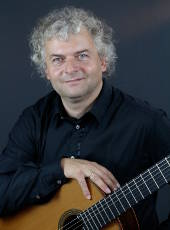
Siegfried Steinkogler
*17 June 1968
Siegfried Steinkogler, composer and guitarist, was born in 1968 in Bad Ischl/Austria. He studied composition at the University Mozarteum Salzburg with R. Febel and G. Wimberger as well as guitar with E. Fisk, B. Kováts and J. Clerch-Diaz. He also studied at the Real Conservatorio de Musica de Madrid (all diplomas with distinction). In addition he attended master classes with A. Pierri, A. Minella, L. Brouwer and N. Harnoncourt.
Since 2023 Siegfried Steinkogler is acting as Artistic Director of the concert series "CloseUp Concerts" which takes place at the "Atelier am Markt in Gmunden/Austria.
His work covers mainly chamber music, music for guitar, orchestral works as well as compositions for young players and youth competitions. Pedagogical concepts like Ludus Mikrotonalis, Bela Bartók´s Mikrokosmos for guitar(s) and his own guitar course Igel Gigel´s Gitarre-Abenteuer (guitar- adventures) are constantly presented at international guitar festivals and training events.
Contract compositions for the Land Salzburg, ORF, (Inconcertamiento for harp and ensemble) and recently for the Guitar Festival Hallein/A (Silent Nights.Globally for viola, doublebass and two guitars)) increased his level of awareness. For the concert series "Bloomsday" he composed "44und" which is about the many feminicides that were committed in the year 2019.
In 2008 his music- and dance-theatre Blodeuwedd has been premiered in Gmunden and awarded by the Land of Upper Austria. The portrait-CD "Siegfried Steinkogler" was released by the ORF in 2009.
In 2018 another full-length work for big orchestra - the Christmas play Zeit für Stille Nacht (Time for Silent Night) was successfully premiered at the city-hall of Oberndorf/A.
From 2002 to 2011 Steinkogler was the Artistic Director of the "salzkammergut strIng festival" and "salzburg strIng festival", where numerous premieres and performances of contemporary compositions took place.
Siegfried Steinkogler teaches guitar and music theory at the Musikum Salzburg.
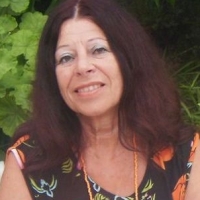
Silvia Sommer
*9 April 1944
Studium: Ab 1952 Klavier an der Akademie für Musik und darstellende Kunst in Wien (ab 1970 Hochschule für Musik) bei Marianne Lauda und Josef Dichler; ab 1959 Studien in Harmonielehre, Kontrapunkt und Komposition bei Alfred Uhl. 1970: Förderungspreis der Stadt Wien und Diplomprüfung für Klavier. Es folgten zahlreiche Auftragskompositionen, Rundfunkaufnahmen und Konzerte als Pianistin (Interpretin eigener Werke) in Europa. 1982: Einladung zum „Encontre de Compositors III" für zeitgenössische Musik in Palma de Mallorca, Förderungspreis des Landes Niederösterreich. 1994: 1. Preis beim Kompositionswettbewerb der Franz Josef Reinl-Stiftung. Preisträgerin beim „Internationalen Kompositionswettbewerb für Streichorchester zu Ehren von Ernst Bloch“ in Lugano (Schweiz) mit der Komposition „No sunshine today for strings“. 2015: Es erscheint die CD „Silvia Sommer“ in der vom ORF produzierten Reihe „Zeitton“ mit einem Querschnitt ihrer Kompositionen (ORF CD 3189)
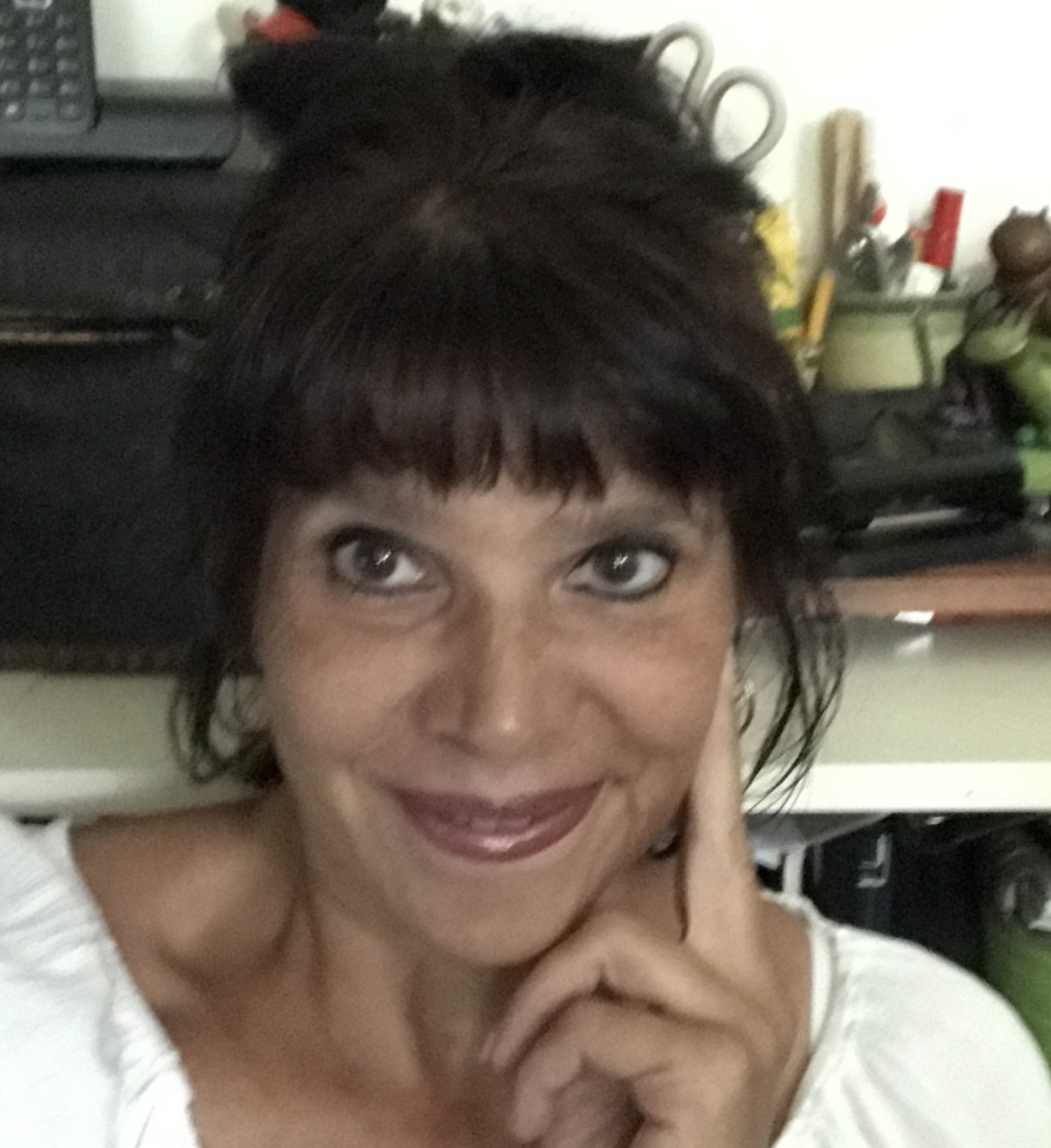
Sonja Kitaev
*28 August 1966
Sonja Kitaev was born in Salzburg in 1966. In 1984, as a self-taught artist, she gained admission to the Mozarteum University in Salzburg. In 1986, she began her studies at the University of Music and Performing Arts in Vienna. She completed her diploma examination in 1982, which also certified her as a teacher. From 1993, she spent 10 successful years as a singer on the West Coast of the United States, collaborating with many prominent names. Part of her repertoire consisted of her own compositions and self-written songs, which she accompanied herself on the piano. This concert activity then took her back to Austria via Spain in 2004.
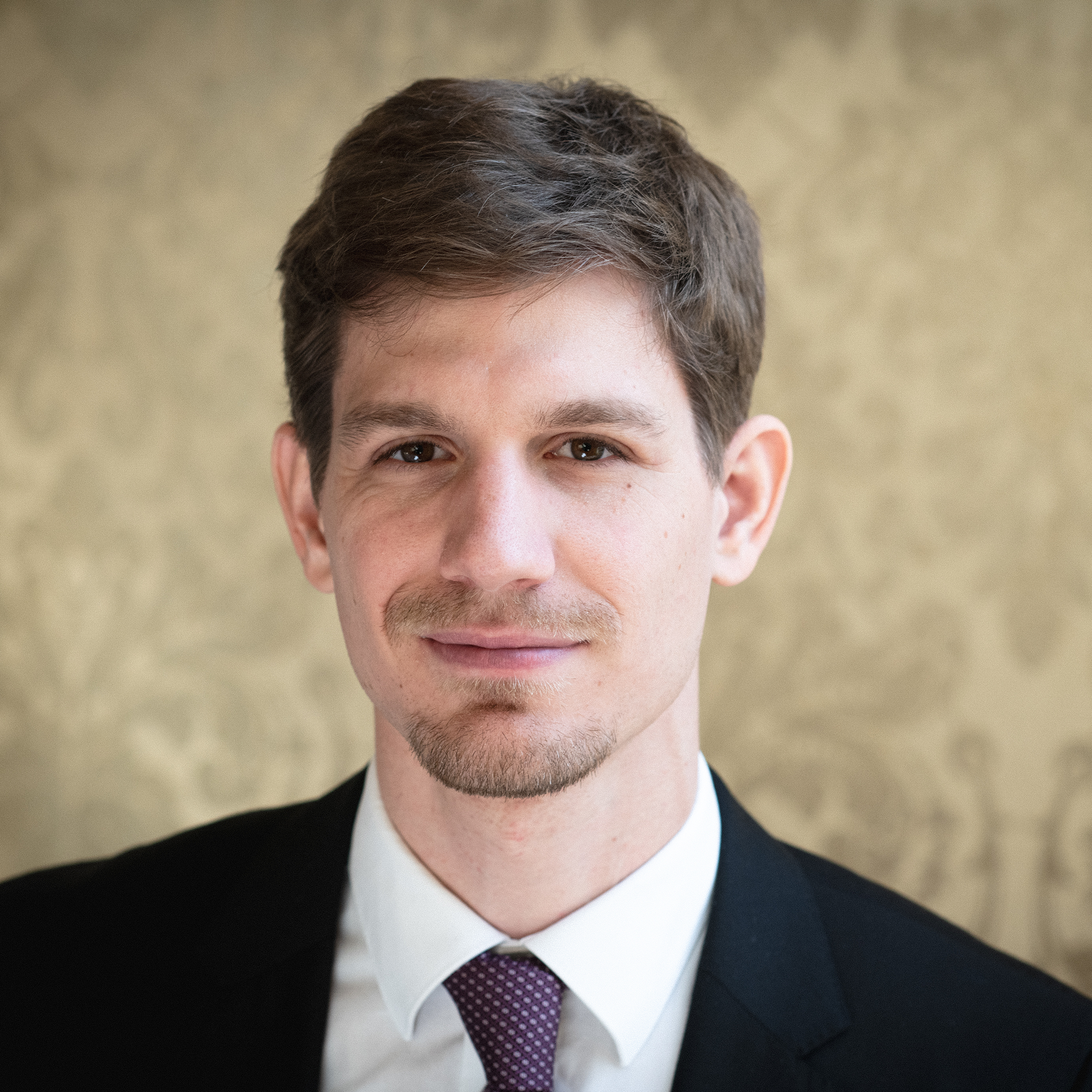
Stefan Plank
*24 August 1989
Trumpet Soloist & Composer: 2018 – 2020: 1/3 Trumpeter at Oper Graz/Grazer Philharmoniker 2014 – 2018: 2/3 Trumpeter at Stadttheater Klagenfurt / KSO; Projects with: Vienna Philharmonic, Vienna Symphony Orchestra, Radio Symphony Orchestra Vienna, Vienna State Opera, Volksoper Wien, Tonkünstler Orchestra Lower Austria. Education: Concert Studies in Trumpet at the University of Music and Performing Arts in Vienna with Prof. Pomberger, Prof. Mühlfellner Lessons with Prof. Johann Plank, Bo Nilsson, Hakan Hadenberger Autodidact: Composition Additional Instrument: Jazz Piano Milestones: Premiere at the Wiener Musikverein (2014/2023), Premiere in Wernigerode (Germany) (2023), Patent and Premiere at the Wiener Musikverein (2021): 4-Valve Trumpet
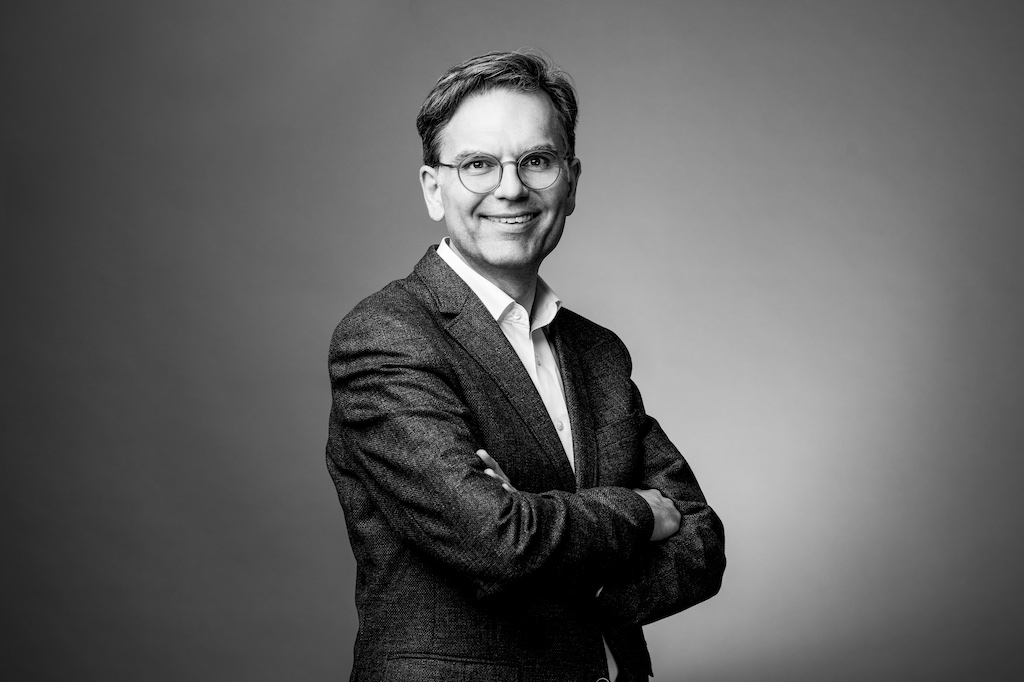
Thomas Modrej
*25 April 1973
Born April 25, 1973; Composer, music arranger, musical director; Professor at the Gustav Mahler Private University in Carinthia; Autodidactic compositions from the age of 15, studies in composition and music theory with Prof. Alfred Stingl, studies in orchestral conducting with Prof. Wolfgang Czeipek. Musical director and arranger under the pseudonym “Orchester Thomas Reymond” for the cabaret artist and singer Christian Hölbling alias “Helfried” Chamber, film, orchestra, choir, big band, brass music commissioned works, production of the current radio signations and Jingles for the ORFK; Cooperation: ORF, Music Weeks Millstatt, Music Association for Carinthia, Military Music Carinthia, City Theater Klagenfurt, Johannes Brahms Competition Pörtschach, Carinthian Symphony Orchestra, Cathedral Music and Choir Klagenfurt, Carinthian Provincial Government, KOSTA-Zurich Foundation, Carinthian Music Academy Ossiach, Culture Prize of the Province of Carinthia - Promotion Prize for Music , Theodor Körner Prize for Science and Art;
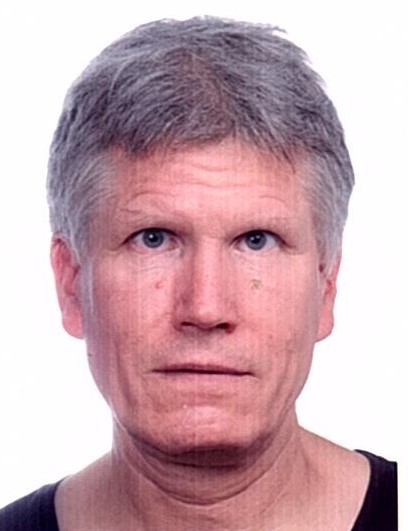
Ulf-Diether Soyka
*5 June 1954
Freelance composer in Vienna since 1983. Since 2000 until 2020 lecturer for composition and music theory at two conservatories in Vienna, from 2010 also high school teacher. Director of a church choir, board member of the Austrian Composers' Association (serious music), lectures at English and Australian music universities. Music journalism (Ö.Musikzeitschrift, Die Furche, Die Presse, etc.). He has led music symposia and has held positions in AKM, ÖGZM and the Music Trade Union. Lecturer at the Vienna Summer Seminars for New Music. Founded an ensemble for new music. 1983 Austrian state scholarship for composition. Choir director and conductor (first performances of 1938 expelled composers, etc.). Diploma studies with Friedrich Cerha (composition) and Otmar Suitner (orchestral conducting), and music education at the University of Music and Performing Arts Vienna. Lecturer there from 1979 to 1981. Education at the Conservatory of the City of Vienna. School attendance and Humanistic Matura in Vienna.
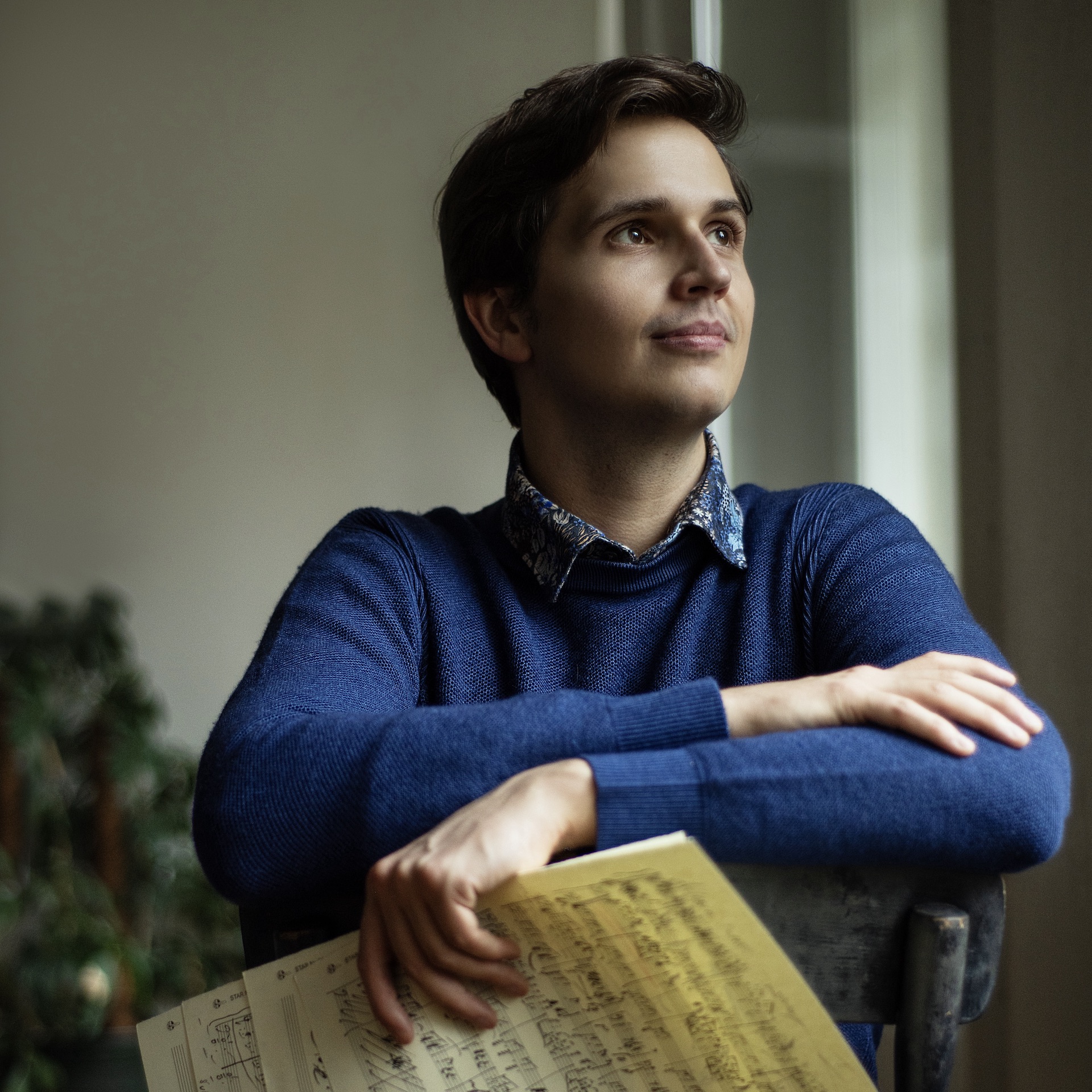
Ulrich Lehensteiner
*16 July 1996
Ulrich Lehensteiner is an austrian composer, currently living in Vienna.
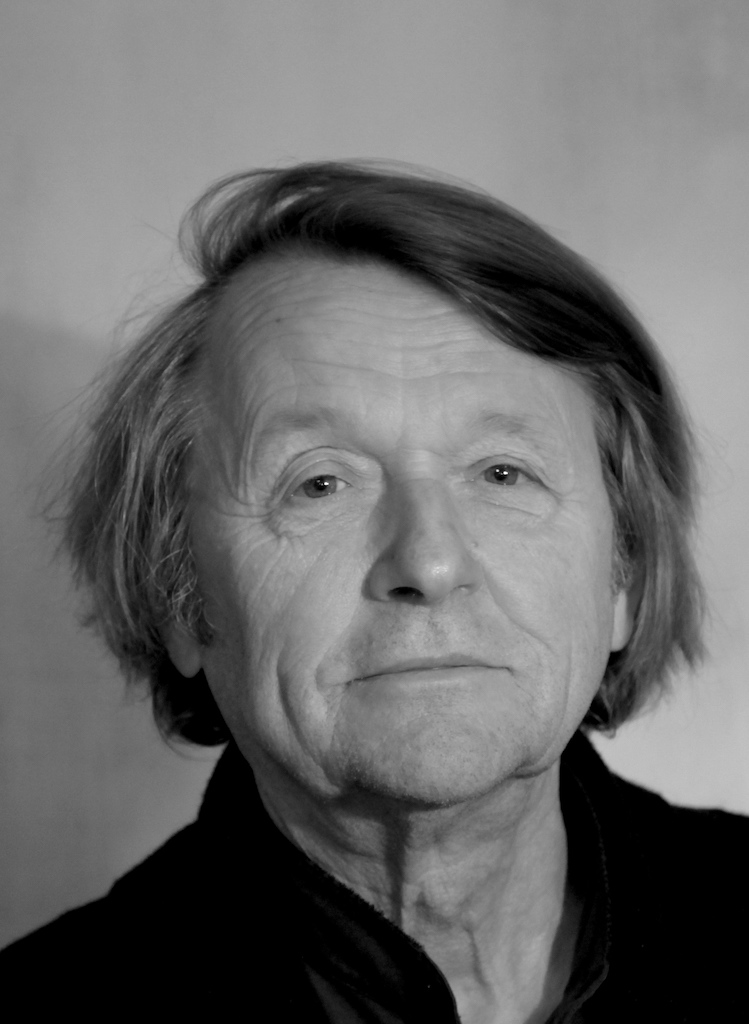
Wolfgang Florey
*18 March 1945
Wolfgang Florey, born in Salzburg in 1945, studied violoncello at the Salzburg Mozarteum (with Prof. Georg Weigl), the Vienna Music Academy and the Hamburg Musikhochschule (with Prof. Wilfried Boettcher). In 1961 he initiated a church music concert series in his hometown of Salzburg, which he also directed until 1965. The programmatic focus was on the work of J.S. Bach and works of contemporary music. In 1968, together with the composers Jens Peter Ostendorf and Thomas Jahn, among others, he founded the group "Hinz&Kunst" in Hamburg, which was initially concerned with forms of free improvisation, but soon began to explore the possibilities of collective composing and, as an instrumental ensemble, set itself the task of testing new forms of communicating music and the abolition of the division of labour between composer and interpreter in its own practice. In addition to their attempts to compose together, the ensemble soon developed an active international concert schedule, was a guest at numerous festivals and received the German Record Prize in 1976 and the Prize of the Jury of the International Composers' Seminar in Boswil (Switzerland) in 1979. Hans Werner Henze wrote several works for Hinz&Kunst and invited the ensemble to his festival in Montepulciano, Tuscany, to set up his "Cantiere internazionale d'arte". Since 1968, however, Florey has also been involved in student politics and in 1972 was elected secretary of the project area of culture in the Association of German Student Bodies and in this capacity was involved in the formulation of cultural-political objectives and the coordination of concrete artistic projects. After completing his studies, he received a teaching assignment at the Hamburg Academy of Music for the subjects violoncello, methodology and didactics of instrumental teaching and carried out a model experiment over several years on project-oriented studies within the framework of school music education, which was connected with the objective of orienting the musical theoretical subjects more strongly towards their own practical school compositional activity. In addition to collaborative compositions within the framework of the group Hinz&Kunst, the first independent compositions emerged. From 1980 to 2002 Florey worked continuously for the small Viennese theatre "Gruppe 80" and in 1983 became musical director of the newly founded ensemble of the Ruhrfestspiele Recklinghausen, with which he remained associated until 1991. In total, he wrote about 100 pieces of stage music for various German-language stages and music for more than 40 radio play productions. In addition, he wrote a number of songs, chamber music, orchestral works and works for music theatre.

Wolfram Wagner
*28 September 1962
Studied composition at the Universität of Music in Vienna, Guildhall School of Music in London and Musikhochschule Frankfurt.
Awards and distinctions (internat. Anton Bruckner Price Linz 1997, Publicity Price from AKM Austria, Appreciation-Price of Lower Austria 2008 etc.).
1992/93 Composer in Residence of the Academy of St. Martin in the Fields, London
2011/12 Composer in Residence of the Wiener Concert-Verein.
Professor in composition, harmony and counterpoint at the University of Musik in Vienna, lectures at the Coservatory in Paris and at the Universities in Amsterdam, Cluj/Rumania and Greensboro/USA.
Works (5 operas, 1 ballet, 3 oratorios, orchestral works, chamber music, works for choir and songs) commissioned by the Wiener Musikverein, Wiener Konzerthaus, Academy of St. Martin in the Fields, Neue Oper Wien, Carinthischer Sommer, played by RSO Vienna, Residence Orchestra Den Haag, Christian Altenburger, Patricia Kopatchinskaja etc.

